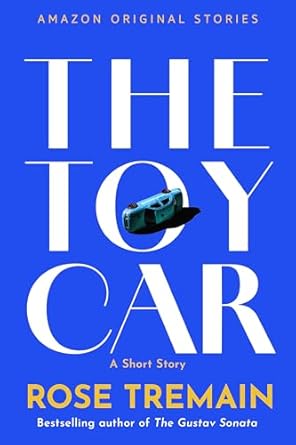🚗 Book Review: The Toy Car by Rose Tremain
A quietly powerful coming-of-age short story that explores identity, expectation, and the bittersweet pull of home.
From Orange Prize–winning author Rose Tremain, The Toy Car is a compact yet emotionally resonant tale set between a sun-drenched Greek island and the overwhelming sprawl of London. With a Goodreads rating of 3.16/5 from over 1,700 readers, this 48-page story has sparked mixed reactions—some praising its lyrical restraint, others wishing for deeper character development.
🧠 Plot Summary
Seventeen-year-old Petros Castellanos lives a modest life on a Greek island, destined to inherit his father’s taxi fleet. But his English mother envisions a different future—one shaped by ambition and opportunity far from their insular community.
Petros is sent to London to stay with his mother’s cousin, where the city’s dazzling possibilities both terrify and enthrall him. As he navigates this new world, he must choose between fulfilling his mother’s dreams, honoring his father’s legacy, or forging a path entirely his own.
💬 Reader Reactions
- “A tender, beautifully written story about finding your place in the world. Tremain’s prose flows with quiet elegance.” — NetGalley reviewer Nicole R.
- “The premise is strong, but the emotional payoff felt muted. Petros’s journey didn’t quite evolve.” — Goodreads community feedback
- “A letdown. The plot felt thin, and the Greek characters were reduced to stereotypes.” — NetGalley reviewer 1663415
🎯 Themes & Style
- Identity & Belonging: Petros’s internal conflict reflects the universal tension between familial duty and personal desire.
- Cultural Contrast: The shift from rural Greece to urban London highlights the disorientation of cross-cultural transitions.
- Minimalist Prose: Tremain’s writing is restrained and evocative, though some readers found it emotionally distant.
🏁 Final Verdict
The Toy Car is a reflective, understated story that may resonate most with readers who appreciate literary fiction’s quieter moments. While not universally praised, it offers a thoughtful meditation on the choices that shape us—and the places we call home.


